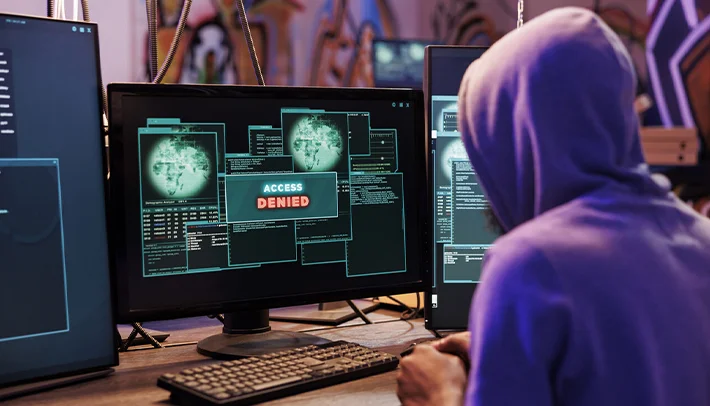How Thakur College of Engineering and Technology’s Cybersecurity Program is Educating the Next Generation of Ethical Hackers

It always begins with a mystery.
A locked file. A line of code gone bad. A stealthy exploit sneaking through a vulnerability nobody picked up on. Somewhere in a vast ocean of data, things become wrong. And someone must discover what went wrong, how it went wrong and how it can be prevented from going wrong again.
That someone isn't necessarily a coder. Isn't necessarily a computer geek. That someone is an ethical hacker.
At Thakur College of Engineering and Technology, the concept of cybersecurity is not given a secondary status. It is an entire mission — a mission to equip acumen minds to become guardians in the online world. A mission to develop thinkers who not only learn security tools but comprehend the thought process behind each attack and each counterattack.
This isn't a classroom. It is a laboratory for the guardians of the internet of tomorrow.
1. From Curiosity to Capability
Most students enter the program with a basic curiosity. They are interested in how systems work. They want to learn how information travels from source to source. They want to know why things fail.
And that curiosity is where it all starts.
TCET's cybersecurity program capitalizes on that interest and gradually hones it into actual skill. The process is hands-on from the beginning. Students do not simply read about encryption — they construct it. They do not just study phishing — they mimic it in controlled environments and study how to counter it.
The program exposes students to the thought processes of ethical hacking — understanding how real attackers think, identifying patterns, following behaviors, and reacting to threats before they escalate.
It is like piecing together a puzzle where the pieces continuously change shape. And that is what makes it so exciting.
2. Labs That Feel Like Real-World Networks
Cybersecurity can't be just taught in theory. That is why TCET has constructed labs that simulate real-world network environments — with actual devices, mimic attacks, and complete system configurations.
- Students discover how data moves and how malware conceals itself within systems.
- They conduct test attacks, build firewalls, and use network security tools.
- They learn detection systems, authentication models, and real-time response strategies.
It’s one thing to recognize a security threat. It’s another to identify it in real time and prevent its propagation. In the lab, students get to do both — until defense becomes instinct.
3. Ethics at the Core
To be an ethical hacker is not only about skill — it is about responsibility.
- Students are taught to understand the power and responsibility that come with their knowledge.
- They learn to hack with integrity, permission, and purpose.
- Courses include real-world case studies on ethical breaches, legal frameworks, and professional standards.
The goal is simple: to build experts who can be trusted — by companies, clients, and society at large.
4. Competitions That Shape Confidence
The program also encourages participation in national and international cybersecurity contests — high-stakes arenas where students defend, decode, and compete.
- Students participate in capture-the-flag (CTF) challenges and simulation battles.
- They learn to think under pressure and make split-second decisions.
- They build teamwork and resilience through cooperative problem-solving.
These contests build more than skill — they build confidence, professionalism, and composure under real-world conditions.
5. Building for the Future
The greatest advantage of TCET’s cybersecurity course is that it doesn’t end with theory, labs, or competitions — it extends into the industry.
- Partnerships with cybersecurity firms expose students to evolving tools and technologies.
- Guest lectures from industry professionals bridge academic and corporate realities.
- Students transition into roles as researchers, analysts, engineers, and consultants.
Every graduate carries the same foundation — curiosity turned into skill, skill guided by ethics, and ethics driven by purpose.
6. More Than Protection
Cybersecurity is often called digital defense — but at its heart, it’s about trust.
At TCET, students are not only learning how to stop attacks — they are learning how to build systems that foster safety and confidence in a connected world.
- They ask: What if it breaks? Who is affected? How can we repair it quickly?
- They seek permanent solutions that prevent recurrence and strengthen systems.
- They evolve into responsible professionals — the guardians of the digital age.
Because when the future is full of code and connections, we’ll need more than engineers — we’ll need guardians.